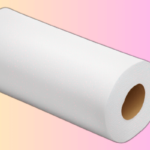Choosing cookware for your kitchen, the decision between titanium and stainless steel can be a tough one. Both materials have their own set of advantages and disadvantages, and it’s important to understand the differences before making a purchase. In this blog post, we’ll explore the key characteristics of titanium and stainless steel cookware, and help you determine which option is best for your cooking needs. By the end of this post, you’ll have a clear understanding of the benefits and drawbacks of each material, allowing you to make an informed decision for your kitchen.
Titanium Cookware: Pros and Cons
When it comes to choosing between titanium and stainless steel cookware, it’s important to weigh the pros and cons of each material. Titanium cookware is known for its lightweight and durable nature, making it easy to handle and long-lasting. It also heats up quickly and evenly, making it an efficient option for cooking. However, titanium cookware can be more expensive than stainless steel and may not be compatible with induction stovetops.
On the other hand, stainless steel cookware is known for its versatility and resistance to corrosion, making it a reliable and low-maintenance option for the kitchen. It’s also typically more affordable than titanium cookware and can be used on induction stovetops. However, stainless steel cookware can be heavier and may not heat up as quickly or evenly as titanium cookware.
Ultimately, the decision between titanium and stainless steel cookware depends on your specific cooking needs and budget. Consider factors such as weight, durability, heat conductivity, and compatibility with your stovetop when making your decision. By understanding the pros and cons of each material, you can make an informed choice that suits your individual preferences and cooking style.
Stainless Steel Cookware: Pros and Cons
Stainless steel cookware is a popular choice for many home cooks due to its versatility and resistance to corrosion. It is also low-maintenance and more affordable than titanium cookware. Stainless steel cookware is compatible with induction stovetops and provides even heat distribution, making it a reliable option for cooking. However, it can be heavier and may not heat up as quickly as titanium cookware.
On the other hand, titanium cookware is known for its quick and even heat distribution, making it an efficient option for cooking. It is also lightweight and durable. However, titanium cookware can be more expensive than stainless steel and may not be compatible with induction stovetops.
When deciding between the two materials, it’s important to consider factors such as weight, durability, heat conductivity, and compatibility with your stovetop. By understanding the pros and cons of each material, you can make an informed decision that suits your individual preferences and cooking style. Ultimately, the choice between titanium and stainless steel cookware depends on your specific cooking needs and budget.
Heat Conductivity and Distribution
are important factors to consider when choosing cookware for your kitchen. Stainless steel cookware is a popular choice due to its compatibility with induction stovetops and even heat distribution, making it a reliable option for cooking a variety of dishes. However, it can be heavier and may not heat up as quickly as titanium cookware. On the other hand, titanium cookware is known for its quick and even heat distribution, making it an efficient option for cooking. It is also lightweight and durable, making it a great choice for those who want a long-lasting option. However, titanium cookware can be more expensive than stainless steel and may not be compatible with induction stovetops.
When deciding between the two materials, it’s important to consider factors such as weight, durability, heat conductivity, and compatibility with your stovetop. By understanding the pros and cons of each material, you can make an informed decision that suits your individual preferences and cooking style. Ultimately, the choice between titanium and stainless steel cookware depends on your specific cooking needs and budget. It’s important to choose the right cookware for your kitchen to ensure that you can cook efficiently and enjoy the process of cooking your favorite dishes.
Durability and Longevity
Durability and Longevity are important factors to consider when choosing cookware. It can withstand high temperatures and is resistant to corrosion, making it a reliable option for cooking. However, stainless steel cookware can be heavier and may not heat up as quickly as titanium cookware.
On the other hand, titanium cookware is also known for its durability and longevity. It is lightweight, making it easy to handle, and it heats up quickly and evenly, making it an efficient option for cooking. Titanium cookware is also resistant to corrosion, making it a great choice for long-term use. However, it may be more expensive than stainless steel and may not be compatible with induction stovetops.
When choosing between stainless steel and titanium cookware, it’s important to consider factors such as weight, heat conductivity, durability, and compatibility with your stovetop. By understanding the pros and cons of each material, you can make an informed decision that suits your individual cooking needs and preferences.
Maintenance and Care
Stainless steel cookware is known for its durability and resistance to staining and rust. It is easy to clean and maintain, making it a popular choice for many cooks. To keep your stainless steel cookware in top condition, it’s important to clean it thoroughly after each use and avoid using abrasive materials that can scratch the surface. Additionally, you can use a stainless steel cleaner to keep your cookware looking shiny and new. On the other hand, titanium cookware is also known for its durability and longevity. It is lightweight, making it easy to handle, and it heats up quickly and evenly, making it an efficient option for cooking.
Titanium cookware is also resistant to corrosion, making it a great choice for long-term use. However, it may be more expensive than stainless steel and may not be compatible with induction stovetops. When choosing between stainless steel and titanium cookware, it’s important to consider factors such as weight, heat conductivity, durability, and compatibility with your stovetop. By understanding the pros and cons of each material, you can make an informed decision that suits your individual cooking needs and preferences. Ultimately, the choice between titanium and stainless steel cookware depends on your specific cooking style and budget. It’s important to choose cookware that will meet your needs and allow you to cook efficiently and enjoy the process of cooking your favorite dishes.
Cost and Affordability
When it comes to choosing between titanium and stainless steel cookware, there are a few important factors to consider. Titanium cookware is known for its durability, lightweight design, and efficient heat conductivity. It is also resistant to corrosion, making it a great long-term investment. However, it may be more expensive than stainless steel and may not be compatible with induction stovetops. On the other hand, stainless steel cookware is generally more affordable and can be used on any type of stovetop. It is also known for its durability and versatility in the kitchen. When making your decision, it’s important to consider factors such as weight, heat conductivity, durability, and compatibility with your stovetop. Ultimately, the choice between titanium and stainless steel cookware depends on your specific cooking style and budget. By understanding the pros and cons of each material, you can make an informed decision that suits your individual cooking needs and preferences.
Environmental Impact
When it comes to choosing between titanium and stainless steel cookware, it’s important to consider the environmental impact of each option. Titanium cookware is known for its durability and long lifespan, which can reduce the amount of cookware that ends up in landfills. Additionally, titanium is a naturally occurring metal, making it an eco-friendly choice for those concerned about sustainability. However, the production of titanium cookware may have a higher environmental impact due to the energy-intensive process of extracting and refining titanium ore.
On the other hand, stainless steel cookware is also durable and long-lasting, which can help reduce waste. Stainless steel is also highly recyclable, making it a more sustainable option. However, the production of stainless steel requires significant amounts of energy and resources, and the mining of its primary components (iron and chromium) can have negative environmental impacts.
Ultimately, the environmental impact of your cookware choice may depend on factors such as the manufacturing process, energy consumption, and the materials used. By considering these factors, you can make a more informed decision that aligns with your environmental values. Additionally, taking care of your cookware and using it for as long as possible can help reduce its overall environmental impact.
Which is the Better Option?
When considering which cookware option is better, it’s important to weigh the environmental impact of both titanium and stainless steel. Titanium is a naturally occurring metal, making it a more eco-friendly choice for those concerned about sustainability. However, the production of titanium cookware may have a higher environmental impact due to the energy-intensive process of extracting and refining titanium ore.
On the other hand, stainless steel cookware is also durable and long-lasting, which can help reduce waste. Stainless steel is highly recyclable, making it a more sustainable option in terms of reducing environmental impact. However, the production of stainless steel requires significant amounts of energy and resources, and the mining of its primary components (iron and chromium) can have negative environmental impacts.
Ultimately, the environmental impact of your cookware choice may depend on factors such as the manufacturing process, energy consumption, and the materials used. By considering these factors, you can make a more informed decision that aligns with your environmental values. Additionally, taking care of your cookware and using it for as long as possible can help reduce its overall environmental impact.
Conclusion
In conclusion, both titanium and stainless steel cookware have their own advantages and disadvantages. Titanium cookware is lightweight, durable, and heats up quickly, but it can be expensive. Stainless steel cookware is affordable, easy to clean, and non-reactive, but it may not distribute heat as evenly as titanium. In the end, the most suitable option for you will be determined by your cooking requirements and individual tastes. It’s important to consider factors such as price, weight, heat distribution, and durability when choosing between titanium and stainless steel cookware.
FAQ
1. What are the main differences between titanium and stainless steel cookware?
The main differences between titanium and stainless steel cookware are the weight and durability. Titanium cookware is much lighter and more durable than stainless steel, but stainless steel is generally more affordable and easier to maintain.
2. Which one is better for cooking?
It depends on your cooking preferences and needs. Titanium cookware is great for outdoor cooking and backpacking due to its lightweight and durability, while stainless steel cookware is more versatile and can be used for a wider range of cooking methods and recipes.
3. Is titanium cookware safe to use?
Yes, titanium cookware is safe to use. It is non-toxic and does not react with food, making it a safe and healthy option for cooking.
4. Can stainless steel cookware rust?
Stainless steel cookware is resistant to rust and corrosion, but it can still rust under certain conditions, such as exposure to salt or acidic foods. Proper care and maintenance can prevent rusting in stainless steel cookware.
5. Which one is easier to clean?
Stainless steel cookware is generally easier to clean due to its smooth and non-porous surface. Titanium cookware may require more effort to clean, especially if food becomes stuck to its non-stick coating.
6. Are there any health concerns with using titanium or stainless steel cookware?
Both titanium and stainless steel cookware are safe and do not pose any significant health concerns when used properly.
7. What should I consider when choosing between titanium and stainless steel cookware?
Consider your cooking habits, the type of food you cook, and your specific needs. If you value lightweight and durable cookware for outdoor activities, titanium may be the better option. If you prefer versatile and affordable cookware for everyday use, stainless steel may be more suitable.
8. Can titanium or stainless steel cookware be used on induction cooktops?
Stainless steel cookware is generally compatible with induction cooktops, while titanium cookware may not be unless it has a magnetic base. It’s important to check the compatibility of the cookware with your specific cooktop before purchasing.
As an Amazon Associate, I earn from qualifying purchases.




Leave a Reply